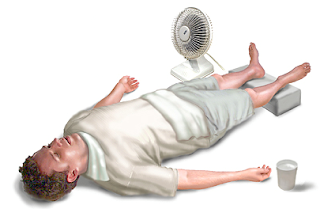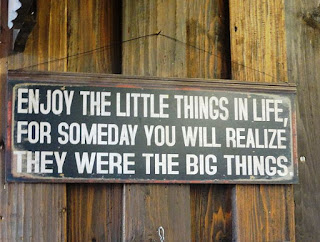Heat stroke: Heat stroke is a medical emergency is a medical emergency
Heat stroke is a medical emergency!
Most severe form of heat illness when the body overheats cannot cool down by sweating because of dehydration hot/humid environment.
Heatstroke is a condition caused by your body overheating, usually as a result of prolonged exposure to or physical exertion in high temperatures. This most serious form of heat injury, heatstroke can occur if your body temperature rises to 104 f (40 c) or higher.
Heatstroke requires emergency treatment. Untreated heatstroke can quickly damage your brain, heart, kidneys and muscles. The damage worsens the longer treatment is delayed, increasing your risk of serious complications or death.
Usually starts with
signs of heat exhaustion
Very
high fever of 41c.
Nausea
and vomiting.
Faintness.
Dizziness.
Weakness.
Headache.
Rapid
heartbeat.
Racing
heart rate.
Convulsion.
Unconsciousness.
Dehydration.
Working
outdoors.
Hot & humid weather.
Vigorous
exercise in hot weather.
Too
much direct exposure to the sun.
Becoming
dehydrated by not drinking enough water to replenish fluids lost through
sweating.
Certain
medications. Some medications affect your body's ability to stay hydrated and
respond to heat. Be especially careful in hot weather if you take medications
that narrow your blood vessels (vasoconstrictors), regulate your blood pressure
by blocking adrenaline (beta blockers), rid your body of sodium and water
(diuretics), or reduce psychiatric symptoms (antidepressants or
antipsychotics).
Very
hot and humid weather, take it easy during the hottest parts of the day.
Avoid tea,
coffee, soda & alcohol.
Limit the
amount of time you spend outdoors.
Protect
yourself outdoors with a wide-brimmed hat and sunglasses.
Wear long-sleeved
clothing loose fitting, lightweight clothing. Wearing excess clothing or
clothing that fits tightly won't allow your body to cool properly when
outdoors.
Try to
schedule exercise, heavy-duty activities or physical labor for cooler parts of
the day, such as early morning or evening, avoid direct sunlight during 12 to 3
PM.
Never leave
anyone in a parked car in warm or hot weather; this is a common cause of
heat-related deaths in children. When parked in the sun, the temperature in
your car can rise 20 degrees f (more than 6.7 c) in 10 minutes.
Be cautious
if you’re at increased risk. If you take medications or have a condition that
increases your risk of heat-related problems, avoid the heat and act quickly if
you notice symptoms of overheating. If you participate in a strenuous sporting
event or activity in hot weather, make sure there are medical services
available in case of a heat emergency.
Home
treatment isn't sufficient for heatstroke. If you have signs or symptoms of
heatstroke, seek emergency medical help. Others should take steps to cool you
off while waiting for emergency help to arrive.
If able to drink
liquids, have then sip cool water.
Remove clothing, apply
cool water to the skin, & direct air onto the person with a fan.
Apply ice to armpits,
wrists, ankles, & groin.
Don't drink
sugary or alcoholic beverages to rehydrate. These drinks may interfere with
your body's ability to control your temperature. Also, very cold drinks can
cause stomach cramps.






.png)



.jpg)
Comments
Post a Comment